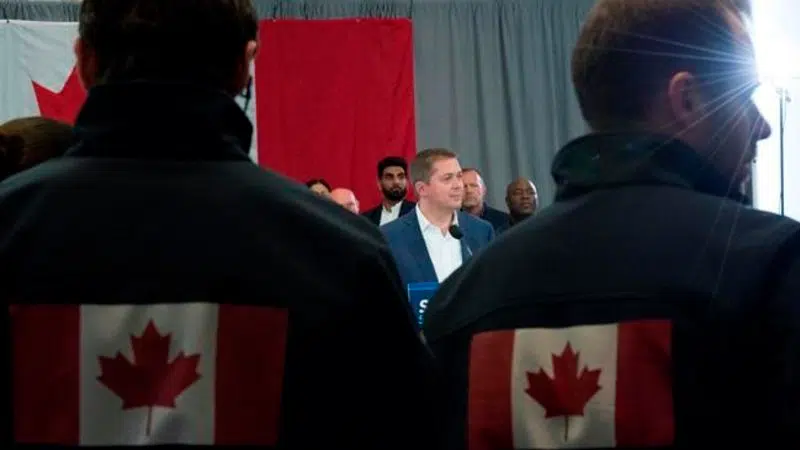
Tories hold biggest rally of election campaign but fail to reach desired attendance
TORONTO — The Conservatives organized their biggest rally of the federal election campaign Friday, attempting to end a difficult week for Leader Andrew Scheer with a show of force.
But the hoped-for massive crowd didn’t materialize and, no sooner had the rally ended, than the party had to dish up more bad news: It has dropped Heather Leung as its candidate in the British Columbia riding of Burnaby North-Seymour for homophobic comments, including describing LGBTQ Canadians as “perverted.”
Giving Leung the boot means the Conservatives will be one short of a full roster of 338 candidates. The deadline for registering candidates passed last Monday.
In an email earlier Friday to local candidates, a regional campaign manager was blunt about the need to fill a large barn at a reconstructed pioneer village in Northwest Toronto for a rally that evening.

